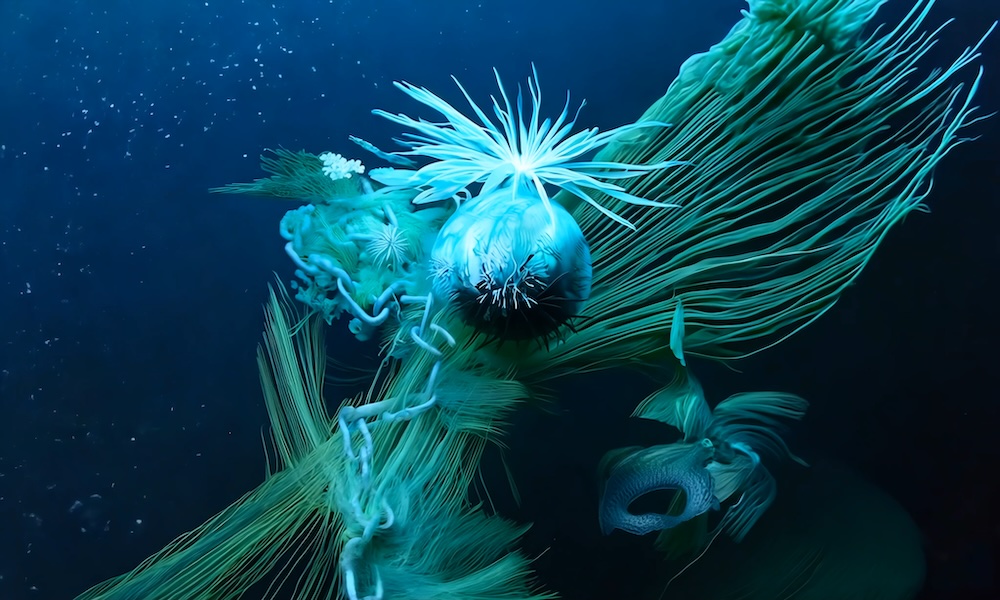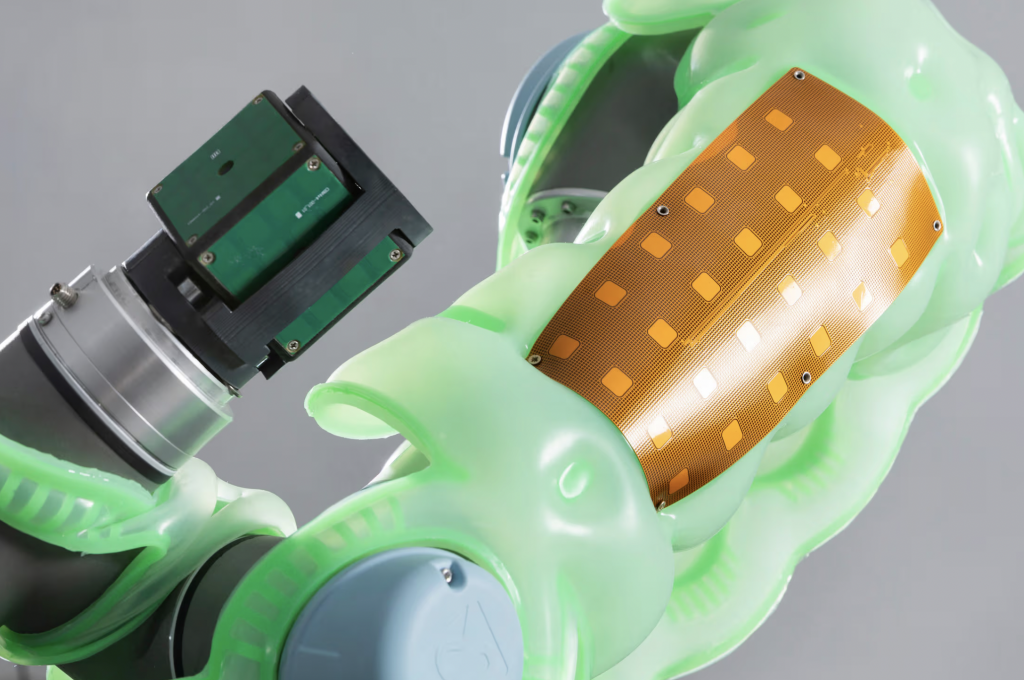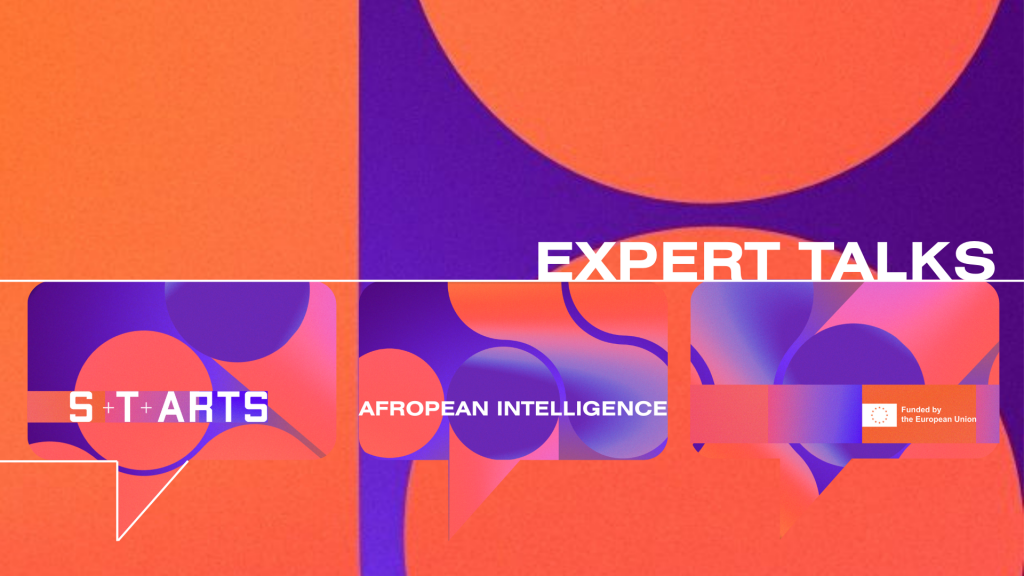Petroentanglements is an artistic investigation into the hidden relationships between oil, ecology, and underwater life in Rijeka, a city shaped by the petrochemical industry. Developed through scuba diving, ROV explorations, and underwater observation, the work turns its attention to overlooked ecosystems—sponges, tubeworms, molluscs, sea cucumbers, and algae—and to the invisible chemicals that flow through sediments, water, and tissues. These communities act as bioindicators of contamination, resilience, and transformation, while also revealing the ambiguities of survival under petrochemical pressure. The project also experiments with AI and citizen-science approaches, creating an open dataset from underwater recordings and diver-led observations that can be used both artistically and scientifically to trace oil toxicity and ecological change. However, because there is a lack of transparency of how this marine environment looks—guarded by gatekeepers of Port and Refinery Authorities—these communities are depicted in a way bordering on the surreal, morphing with the industrial while visually generating new legends and myths of underwater life.
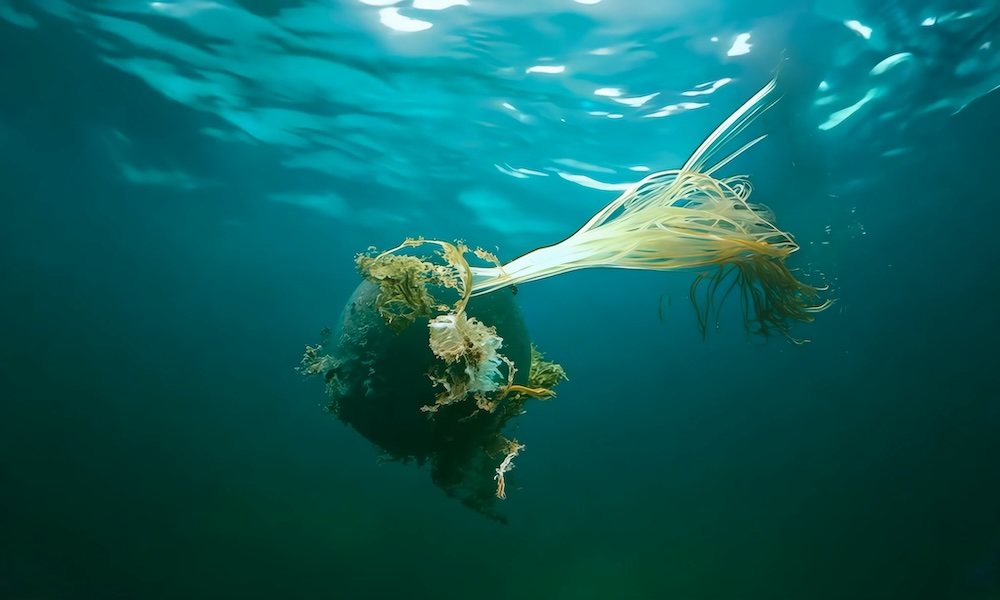
“Petroentanglements is an artistic exploration of how oil, ecology, and underwater life intertwine in Rijeka, using diving-based observations, AI, and citizen-science to reveal hidden marine communities that, amid industrial remnants and guarded waters, morph into surreal myths of resilience, toxicity, and transformation.”
The artworks reflect on this experience: the act of observation, the opacity of access, and the fascination with how life persists and builds on industrial remnants. It is about the difficulty of recognising whether these environments are sites of suffering or thriving, endurance or transformation. The artwork combines traditional sketches, analogue and digital holograms, and AI-influenced videos, creating a multi-layered language that captures the entanglements of oil, ecology, and perception, while offering a poetic, myth-like reimagining of marine worlds.
Artist: Kasia Molga (female, UK/PL)
In collaboration with: Kasia Molga and Studio Molga team: Ivan Marevich – video / 3d rendering, Andrei Chugov- Creative Technologist, Henry Maddicott – Project Manager, Davor Delija – Pastoral Support
Supported by: Government of the Republic of Croatia – Office for Cooperation with NGOs, Drugo More, Rijeka Natural History Museum, Marco Polo Diving Club Rijeka
Residency support network:
Port of Reijka Authority
Port of Rijeka
Drugo More
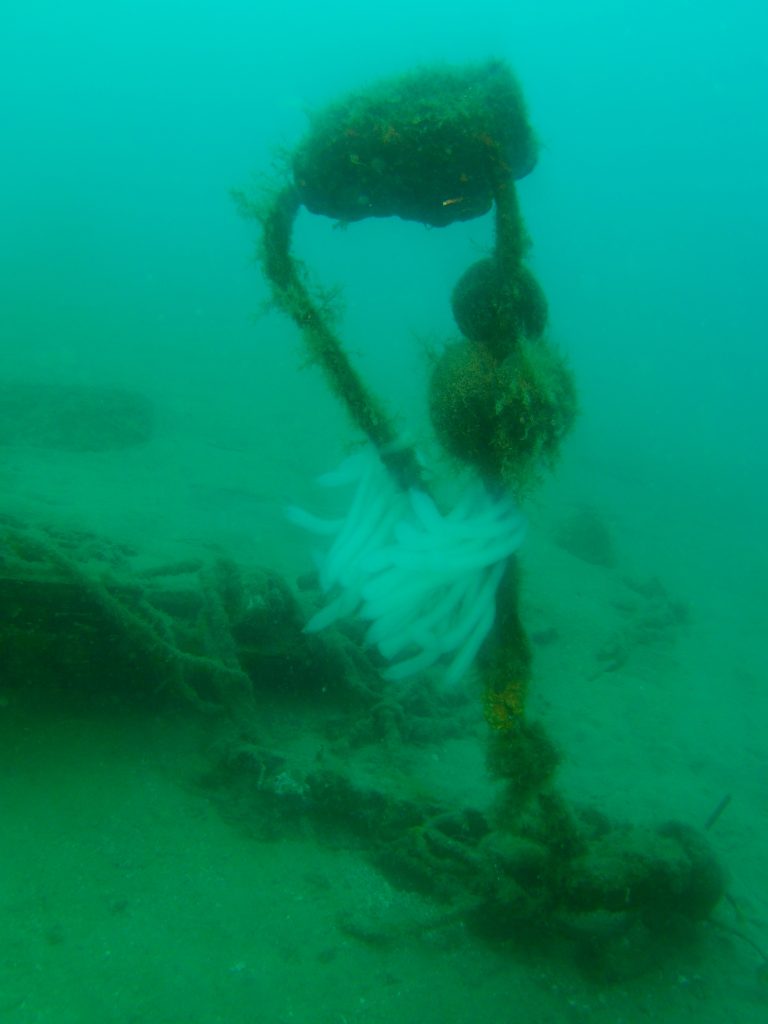
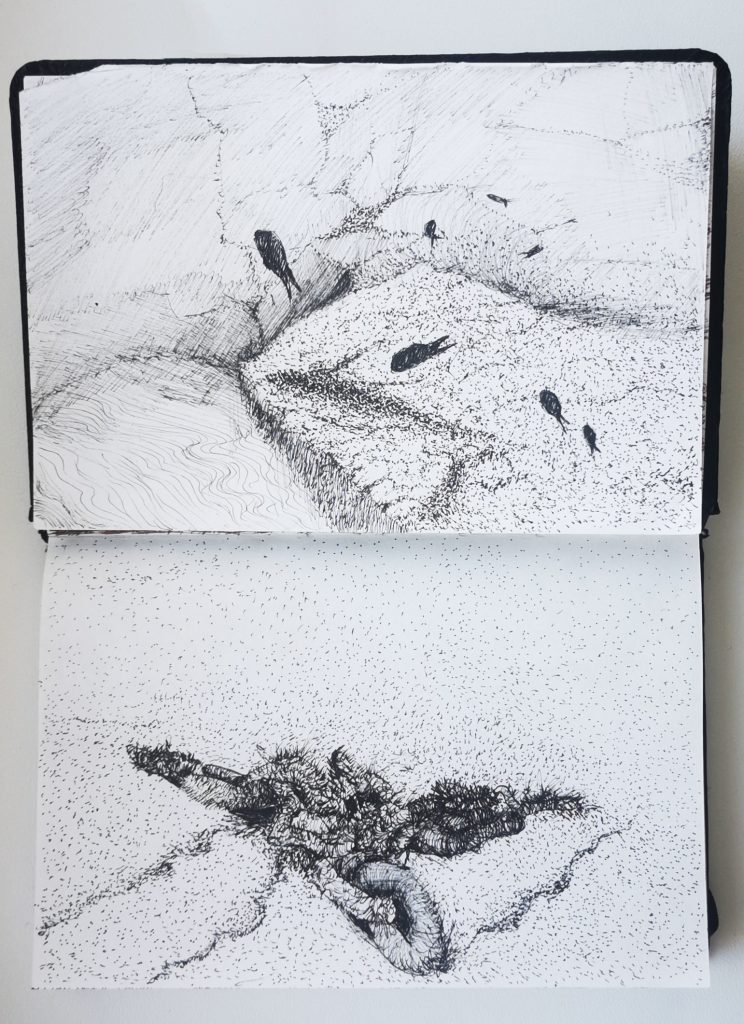
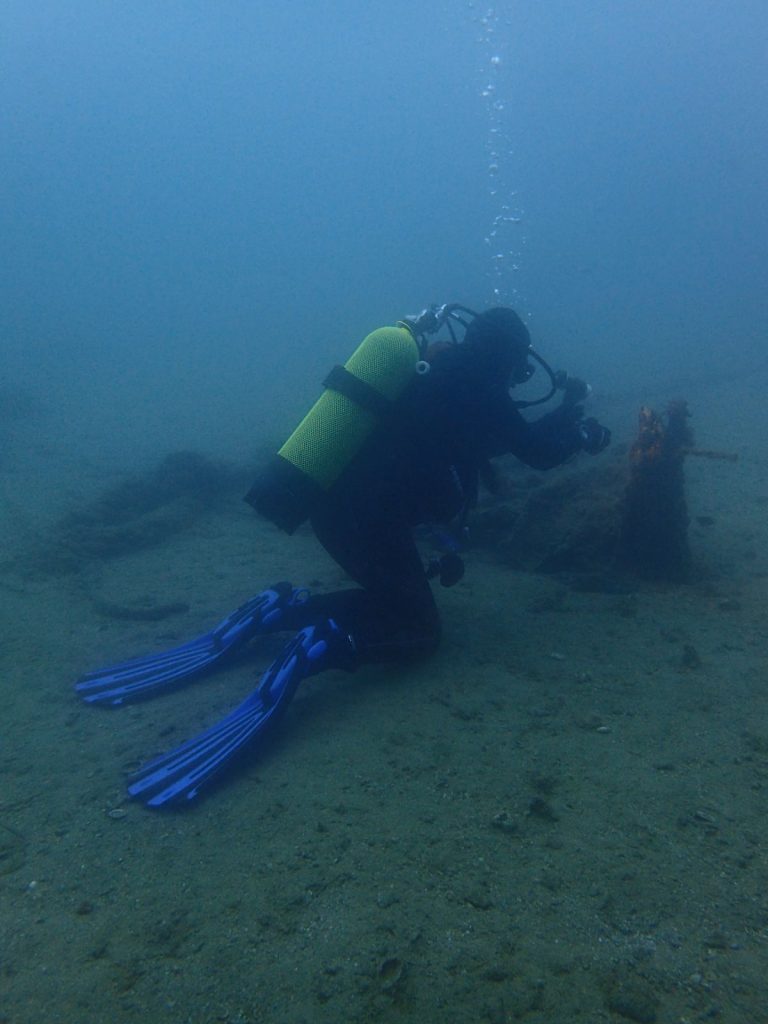
About Kasia Molga
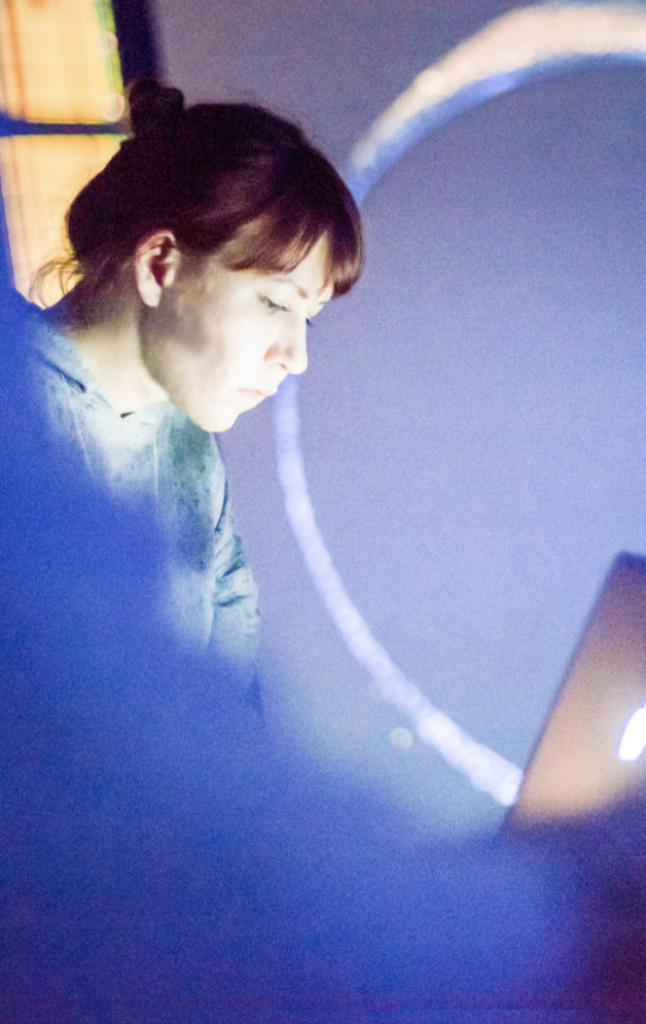
Kasia Molga (UK/PL) Kasia Molga is a design fusionist and artist questioning the impact of accelerating technology on our perception of the natural environment and our relation to other-than-human makers of the living world. Her focus lies in the ocean, exploring how marine ecosystems adapt to human impact and how diving can become a form of artistic and scientific inquiry.
Through immersive experiences, audio-visual performances, interactive installations with hybrid interfaces, or illustrated stories, she seeks to establish new ways of caring for and collaborating with other species — corals, fish, seagrass, microbes, or air — treating them as equal co-designers of our shared habitats. Technology is often “human un-centred” to disrupt exploitative perspectives, while care, repair, and inter/intra-species communication remain central themes.
She has exhibited worldwide, including Centre Pompidou, Tate Modern, V&A Museum, Ars Electronica, Meta.Morf (NO), Translife Media Arts Triennial (Beijing), MIS (São Paulo), and Dutch Design Week (NL), and has received international awards such as the Wellcome Trust Award and Ars Electronica Honorary Mentions. Founder of Studio Molga Ltd, she also lectures at Willem de Kooning Academy. A licensed scuba diver and avid traveller, she grew up at sea aboard merchant navy vessels.
Host / Region

Drugo More/ Rijecka, Croatia – Port Of Rijeka
Abstract of Residency
The residency invited the artist to explore the development of an innovative approach to research and presentation of traces of human activity in the port area specifically designated to transportation and servicing the oil industry.
Keywords
oil, port, ecosystem, sedimentation, erosion
Description of the regional challenge
In the marine environment of Rijeka, the oil industry has maintained a presence since the 1880s, prompting the establishment of a petroleum port in the city centre during that era. This port was fully abandoned in 2008, while the tanker terminal, along with most oil processing operations had been relocated outside the city centre since the 1960s. Over these nearly 150 years, significant advancements in technology have occurred, enhancing safety measures. However, the fundamental processes of oil import, processing, and export of derivatives have remained consistent. Notably, our societal perspective on oil has evolved, evident in the increased focus on safety protocols and the shift of production away from public view into what could be termed ‘forgotten’ spaces.
Oil found in the sea due to human activities is usually associated with tanker disasters and wartime actions. However, most oil found in the sea is there due to regular operations of the oil industry. Equipment malfunctions and human errors are the cause of continuous oil leaks from wells, refineries, and tankers. The longer such facilities exist in our environment, the greater the probability of oil leakage that leaves traces even after these facilities cease operation. These traces are visible in industrial facilities, breakwaters, and ports that are still in use or being transformed or abandoned, but also in less visible changes in soil composition and seabed, and sea chemistry, which significantly determine living conditions for marine flora and fauna.
How is the mission S+T+ARTS driven?
The intersection of science, technology, and art can help us understand what happens in the space where the oil industry meets the sea to advance our understanding of these processes and act accordingly.
During the residency, participants will have possibilities to collaborate with experts across various disciplines, supported by Drugo more and the Port of Rijeka Authority, a non-profit state institution for governance and development of port area in Rijeka, throughout the research and production phases.
About The Project – PETROENTANGELMENTS: How to be Present for Aqualifering Forgotten Spaces
Even if we cease extracting oil tomorrow, the aftermath of petro-supremacy will haunt us and marine ecosystems for many years. It is vital then that we foster compassion alongside scientific understanding of our fellow earth inhabitants.
In this new body of work Kasia Molga will dive beneath the Adriatic Sea to amplify the presence of often overlooked underwater ecosystems, and to investigate ways to effectively depict marine interspecies communities impacted by long-term oil seeps. She will create a multimedia database by taking underwater photographs, video and audio recordings, 3d scans, and notes. This will provide a foundation for the engaging, poetic, and accessible narrative about the non-binary entanglements of oil toxicity; the state of constant flux in the water; the interrelation of oil deposits in sediment; interspecies relations within petro-entanglements. As well as holding scientific value this will nurture empathy and new understanding of these worlds and their importance to us-humans.
Furthermore, Kasia will develop a “formula” for fellow divers to contribute observations to the dataset that will be used to train AI models to detect oil toxicity levels.
Although this work will be Rijeka focussed, the methodology of data collection developed here will have application potential worldwide.
Jury Statement
“The selected proposal is well-suited to the local context addressing all aspects of the problem (material, social, environmental). It mobilizes a specific community (divers) to observe the consequences of continuous oil leaks and spills from the ground (due to the porous karst terrain where the former refinery is located) and the regular operations of the oil industry. It includes creating a dataset for developing an AI model for recognizing oil toxicity and examining the interrelationships of marine organisms and the changes caused by oil spills and leaks. Collaboration with the scientific community and promoting citizen scientist concept within the local diving community are key components. The project’s methodology involves selecting three locations with varying levels of oil spill impact to conduct and record observations and create a dataset (3D scanning). This will be compared with existing research to obtain a more comprehensive picture of the state of the Rijeka aquatorium. The exhibition aspect of the project is also developed to convey the recorded knowledge and tools in the format of an exhibition installation. This aims to present not only facts to the public but also to create a strong emotional connection with marine organisms, the seabed, and the sea..“
